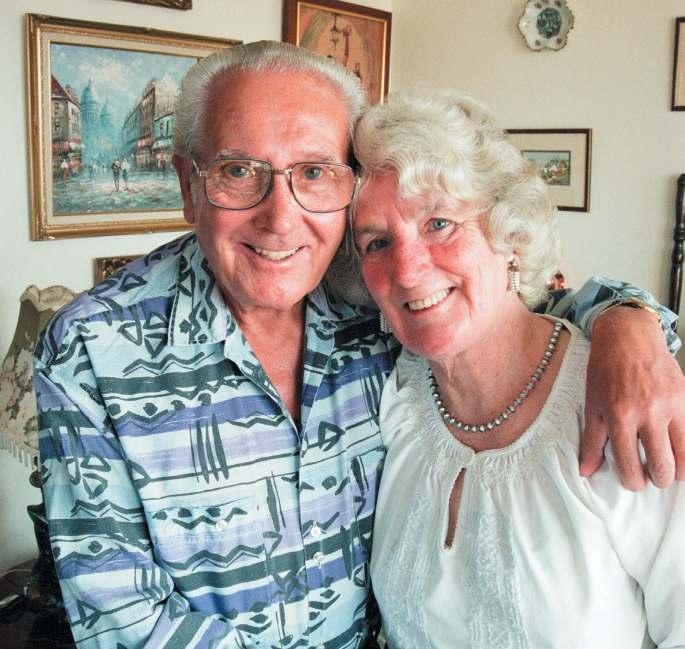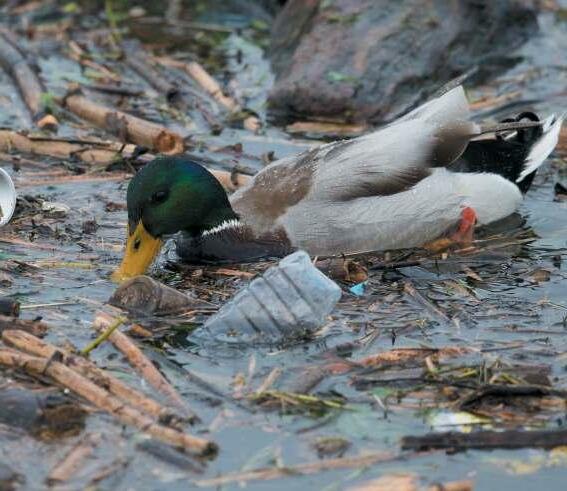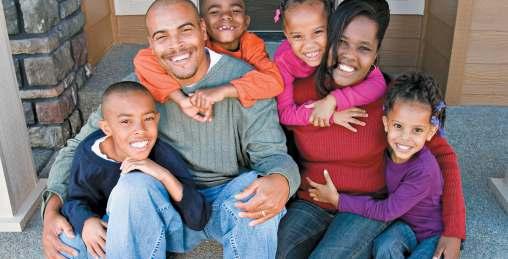
Cambridge University Press
978-1-009-15197-9
Think Level 5 Student's Book with Interactive eBook
Herbert Puchta, Jeff Stranks, Peter Lewis-Jones
Table of Contents
More Information


Cambridge University Press
978-1-009-15197-9
Think Level 5 Student's Book with Interactive eBook
Herbert Puchta, Jeff Stranks, Peter Lewis-Jones
Table of Contents
More Information
Welcome p 4 A Saying yes and adding conditions; get used to; Secrets of love; Friendship idioms
B The bucket list; Verbs with -ing or infinitive; Issuing and accepting a challenge; Our greatest challenge; Phrases for talking about the future
Unit 1
Family matters p 12
Unit 2 Sweet dreams p 20
Using emotive language
Talking about problems with a brother or sister and giving advice on how to deal with these problems.
Giving advice Talking about dreams and what they mean to us
Talking about habits Adverbs to express attitude
Personality (1) Personal conflict
Past tenses with hypothetical meaning Adverbs for modifying comparatives Sleep Idioms with sleep and dream
Literature: Pride and Prejudice by Jane Austen, Culture: Sleep in different cultures , Review
Unit 3 Lucky for some? p 30
Unit 4
Having a laugh p 38
Talking about luck Giving encouragement to someone who’s feeling nervous
Responding to jokes
Talking about funny things that happened
Mixed conditionals (review) Alternatives to if
Emphatic structures Boosting
Life Competencies: Not worrying too much , Literature: Three men in a boat by Jerome K. Jerome, Review
Unit 5 What a thrill! p 48
Unit 6 Famous lives p 56
Discussing risky activities Giving and reacting to an opinion
Complaining Discussing sports teams
Participle clauses Verbs of perception with infinitive or gerund
Modals 1: may, might, can, could, will, won’t Modals 2: should, shouldn’t, must, mustn’t, can’t
Life Competencies: Having a wide range of interests , Culture: Going to the extreme , Review
Unit 7 A thing of beauty? p 66
Unit 8 Cracking the code p 74
Language of persuasion Discussing beauty Substitution (the ones, so, that of, do) Ellipsis
Saying that you don’t understand or didn’t fully hear Talking about language
Relative clauses with determiners and prepositions however, wherever, whatever, etc
Literature: Three poems, Culture: Extinct languages – or are they? , Review
Unit 9 Fairness matters p 84
Unit 10 Learning for life p 92
Discussing inequality Talking imprecisely about numbers
Reacting to news Talking about higher education
Negative inversion Spoken discourse markers
Reported verb patterns (review) Passive report structures Hedging
Life Competencies: Standing up for your beliefs , Literature: Daddy-Long-Legs by Jean Webster, Review
Unit 11 The modern world p 102
Unit 12 Celebrating heroes p 110
Telling someone to keep calm Talking about 21st century problems
Talking about things you’d intended to do but didn’t Expressing anticipation
More on the passive Causative have (review) Modal passives (review)
Future perfect; Future continuous (review) Future in the past
Life Competencies: Avoiding temptation , Culture: Back in time , Review
Phrasal verbs Expressions with luck
WordWise: Expressions with over
Laughter Idioms with laugh and joke
Thrill seeking Idioms with hot and cold
Admiration Fame WordWise: Expressions with take
Fads Emotional responses
Language and communication Personality (2)
Court cases Fairness and equality
WordWise: Expressions with on

Higher education Life after school
(not) getting angry -isms
Awards Success and failure WordWise: Expressions with in
Cambridge University Press
978-1-009-15197-9 Think Level 5 Student's Book with Interactive eBook
Herbert Puchta, Jeff Stranks, Peter Lewis-Jones
Table of Contents
More Information
C Cheering someone up and sympathising about past situations; Life’s ups and downs; A helping hand; Adjectives to describe uncomfortable feelings; Talking about past ability
D Introducing news; Ways of speaking; News mad?; Verb + noun collations with make, take, play, do, give; Cause and effect linkers; Sharing news
Intonation: showing emotions Train to Think: Questioning widely accepted theories Values: Relationships
Different ways of pronouncing c and g Train to Think: The rule of threes
Unstressed words in connected speech Train to Think: Behaviour based on myths rather than facts Values: How do we feel about luck?
Telling jokes: pacing, pausing and punchlines
Train to Think: Divergent thinking
Connected speech feature: elision Train to Think: Red herrings

Modal stress and meaning Train to Think: Making logical conclusions (syllogisms) Values: Teamwork
Connected speech feature: assimilation Train to Think: Understanding irony Values: Valuing the beauty around us
Stress in multi-syllable words Train to Think: Making logical deductions about unknown words Values: Learning another language
Unstressed syllables and words: the /l/ phoneme
Lexical and non-lexical fillers
Train to Think: The ad hominem fallacy
Train to Think: Doing something for the ‘right’ reasons
Reading Article: The power of siblings Website page: Siblings: what’s the big deal? Writing An email Listening Soap opera: People next door
Reading Article: Time for a change? Article: The power of dreaming Writing A proposal Listening Radio programme about staying awake
Reading Article: Blessings in disguise Article: Blog: Serendipity Writing A story Listening Radio show about luck and lucky charms
Reading Article: You have to laugh, don’t you?
Article: The world of comedy: Trevor Noah Writing A review Listening Jokes
Reading Article: Man on a wire Article: Wim Hof: The iceman Writing A newspaper article Listening Extreme sports
Reading Article: To tweet or not to tweet? Article: Fame – a blessing or a curse? Writing An essay Listening Radio programme about Liverpool F.C.
Reading Article about beauty Blog: What’s beautiful for you? Writing A formal letter Listening Podcast about beauty regimes
Reading Article: The Rosetta Stone Article: Multilinguals have multiple personalities Writing A report from a graph Listening The Somerton Man
Reading Article: Miscarriages of justice Book review: The Spirit Level by Richard Wilkinson and Kate Pickett Writing An essay Listening Radio programme about disciplining teenagers
Reading Meeting summary: what to drop? Article: Pick up your guitar and (learn to) play Writing An essay Listening Life after school
Intonation: mean what you say Train to Think: Do as I say, not as I do Values: Modern life
Shifting word stress Train to Think: Appropriate sampling
Reading Article: Internet rage Article: Explaining the modern world: veganism Writing A blog post Listening Radio phone-in about the stresses of modern life
Reading Article: Wanted: real-life heroes Article: I just wrote to say … Thank you! Writing An article Listening Presentation about an inspirational man
Cambridge University Press
978-1-009-15197-9 Think Level 5 Student's Book with Interactive eBook
Herbert Puchta, Jeff Stranks, Peter Lewis-Jones
Excerpt More Information


1 W.01 Read the dialogue and complete each space with one word. Listen and check.
Andy This is hopeless. I give 1
Meg What’s the problem?
Andy This new phone I bought. I just can’t 2 used to it.
Meg Why not?
Andy It’s so different from my old one. Nothing’s where it was before.
Meg Well, it’s a different manufacturer, for one thing. But it can’t be that different.
Andy Well, I promise you it is. And I haven’t got time to be re-learning everything.
Meg Well, you’ll never know how to use it 3 you keep trying to work it out.
Andy Yes I know! But it’s frustrating! These things are 4 to be easy to understand, aren’t they?
Meg Didn’t the assistant at the shop give you any help?
Andy Yeah, she ran 5 a few things with me and pointed out the most important features, but …
Meg But what?
Andy I didn’t really pay a lot of attention. I thought it’d be easy!
Meg You never learn, do you?
Andy Can you 6 a look at it? Help me find my way around it? You’re good at things like this.
Meg OK, I’ll help you, 7 you promise me one thing.
Andy What’s that?
Meg I’ll get it to work for you as 8 as you …

2 Complete Meg’s last line. Compare with the rest of the class.
3 SPEAKING Work in pairs and discuss.
1 When was the last time you had a problem with technology? What happened? Did you manage to solve it?
2 How often do people ask you to help them with technology problems?
3 How easy do you find it to explain such things to other people?
4 Complete the sentences with your own ideas and then compare with a partner.
1 I’ll help you with your homework provided …
2 You can borrow my laptop as long as … 3 I’ll tell Mum what you did unless … 4 Help me clear up this mess. Otherwise … getusedto
5 Complete with the missing verbs then add some ideas of your own. What people said about the first mobile phones: People will never get used to 0 texting rather than speaking to others.
1 videos on such a small screen.
2 photos on a phone. 3 to music through headphones. 4 such a small keyboard. 5 6 7
6 SPEAKING Work in pairs. Discuss the latest item of technology that you have. Talk about features: you’ve already got used to. you’re not used to yet. you think you’ll never get used to.
Cambridge University Press
978-1-009-15197-9 Think Level 5 Student's Book with Interactive eBook
Herbert Puchta, Jeff Stranks, Peter Lewis-Jones
Excerpt More Information
7 Read the essay quickly. What are the writer’s grandmother’s secrets to a successful marriage?
8 Read the essay again and answer the questions.
1 What did other people think about how quickly the writer’s grandparents got married?
2 Why does the writer’s grandmother say respect is important?
3 Why does she say patience is important?
4 What does she say about having children?
9 SPEAKING Work in pairs and decide what you think the secrets of a good friendship are.
My grandparents have been together for 50 years. It’s amazing, isn’t it? My granddad and grandma met when he was 19 and she was 18. He asked her to marry him two weeks later, she said ‘yes’ and they got engaged. They were married six months after that, although everyone else thought they were mad. Her parents warned her that it wouldn’t last and predicted that they’d split up before they turned 20. Well, they didn’t. They proved everyone wrong and half a century on they’re more in love than ever.

I’m thinking of getting married before too long, so I asked my grandma what the secret to a long and happy marriage is and if she had any advice. She had loads. One of the most important things, she said, was respect. Without respect, there’s no chance of a relationship surviving. You both have to be able to accept the other person for who they are and give them room to do the things they need to do. She also highly recommended patience. She said that it was impossible to live with someone day in, day out for 50 years without falling out occasionally. But, with patience, she said that she and my grandfather have always been able to work things out. She said that having children had been a really important part of their marriage. However, she said she believed it was something that shouldn’t be rushed into. They’d waited five years before starting a family. She felt it had given them plenty of time to really get to know each other. She also said that she knew many happy couples who hadn’t had children.
But the most important secret of all, she said, was something she couldn’t really put into words. It was the feeling she had when she first saw my granddad. She said that from that moment on she knew they’d be together forever. And she wasn’t wrong.
10 Put the words in order to make friendship idioms.
1 cry / shoulder / to / a / on / have/ to
2 hip / the / joined / at / be / to 3 air / to / clear / the
4 on / a / get / fire / like / house / to / on 5 out / fall to
6 someone / out / to / inside / know
7 in / look / pod / two / to / peas / a / like 8 the / bury / hatchet / to
11 Complete the mini-dialogues with friendship idioms from Exercise 10.
1 A ‘I was so upset last week when my dog was knocked over by that car.’
B ‘You should have called me. You know you always have my ’
2 A ‘I really hate it when we ’
B ‘Well, let’s stop arguing and be friends again.’
3 A ‘Anna and Lily seem to be getting on much better these days.’
B ‘Yes, it’s a relief that they have finally decided to and cooperate at work.’

4 A ‘There will be lots of useful presentations to go to at this conference.’
B ‘Yes, but we shouldn’t feel we have to be while we’re there. We can meet up afterwards to discuss them.’
12 SPEAKING Work in pairs. Think of someone you know well.
Talk to your partner about the person using as many idioms as you can from Exercise 10.
Cambridge University Press

978-1-009-15197-9 Think Level 5 Student's Book with Interactive eBook
Herbert Puchta, Jeff Stranks, Peter Lewis-Jones Excerpt More Information
1 W.02 Listen to the dialogue and answer the questions.
1 What is a bucket list?
2 Which of the things in the photos has Angus already put on his bucket list?
2 W.02 Read the dialogue and complete it with the words in the list. There are two extra words. Then listen and check.
bet | chance | coming | having | it online manage | problem | reckon | right | to come

Joanna What are you writing, Angus?
Angus Actually, I’m compiling a bucket list.
Joanna A bucket list? Seriously?
Angus Yeah. A list of things you should do before you reach a certain age. I’ll be 20 in a few years’ time so I thought I’d try 1 up with 20 things to do before I’m 20.
Joanna But bucket lists are things people make up when they think they’re getting really old.


Angus Maybe, but I don’t want to get to 20 and regret not 2 made the most of my teenage years.
Joanna So what’s on it?
Angus So far, not a lot. Let’s see. Get a photograph published in a national newspaper or magazine. Do you 3 I could do that?
Joanna No 4 . Your photos are brilliant.
Angus Thanks, Joanna. Then, I’ve got to do a solo wild-water canoe trip.

Joanna Cool. You could wear a helmet camera, record it all and then post 5 If you survive, that is!
Angus Ha, ha! That’s not a bad idea. I’ll add it to my list.
Joanna So what else have you got on your list?
Angus The only other thing is … just a moment. Ah yes. I want to visit every country in Europe before I’m 20.
Joanna Really? Do you know how many countries there are in Europe?
Angus Er, no, not really. I mean, no I don’t. But there can’t be that many.
Joanna Sorry Angus, you’ve got no 6 at all. You’ll never 7 that. You haven’t got the time, or the money frankly.
Angus Yeah, I think you’re probably 8 . But I need something on my list. I’m running out of ideas. Maybe you could
3 Work in pairs. Help Angus with his list. Think of five more things he could put on it.
Verbs with -ing or infinitive
4 Here are some of the things that Angus’ canoe instructor said to him. Complete them with the correct form of the verb in brackets.
1 Don’t forget (hold) on to the paddle all the time
2 This is something you’ll remember (do) for the rest of your life.
3 Stop (worry). It’s perfectly safe. 4 Try (take) a deep breath and see if that helps calm you down. 5 I’ve decided (cancel) today’s canoeing because of the weather.
Issuing and accepting a challenge

5 Match the sentences 1–4 with possible replies a–f. There may be more than one possibility. 1 I challenge you to sing a song in another language. 2 Do you reckon you could spend a day without using your phone?
3 I bet you can’t think of four countries that begin with ‘E’.
4 I bet I can stay awake for more than 24 hours.
a I think you’re (probably) right. b That’s too easy. c I bet I can.
d You’ll never manage to do it.
e Of course I can.
f I’m sure I could.
6 Write down five challenges that your partner could do in class.
Work in pairs and challenge each other.
Cambridge University Press

978-1-009-15197-9 Think Level 5 Student's Book with Interactive eBook
Herbert Puchta, Jeff Stranks, Peter Lewis-Jones
Excerpt More Information
8 Read the blog quickly. What does the writer believe is our greatest challenge?
I’m only 20 years old and I’ve got a really bad feeling about the future of our world. I know that sounds very dramatic, but sometimes I just can’t see that there’s really that much to look forward to. The way things are going, it’s very likely there’ll be nothing left of the natural world for our grandchildren to enjoy. I keep hoping that we’ll finally come to our senses and start fiercely protecting all that we have left, but every time I see the news, there are even more stories about the destruction of our planet. It’s got to the point now where I dread opening the newspaper. The latest story that got me worked up was about a golf course that they’re about to start building up the coast from where I live. They’ve been trying to get permission for years, but it had always been denied on the grounds that the area they want to develop is a protected breeding site for thousands of seabirds. I always imagined that ‘protected’ meant the land could never be touched. Apparently, it doesn’t. The developers must have found the right amount of money needed to get that so-called protection lifted.
I believe that more than ever our greatest challenge is to defend the natural world from man’s greed. This world doesn’t just belong to a powerful few. It isn’t theirs to exploit. This world belongs to all of us –every man, woman and child; every animal, bird and insect. This is a challenge that we must meet now if there’s any hope for the future of our world.

9 Read the blog again and answer the questions.
1 What story did the writer read about recently that has got her so concerned about the world?
2 Why is she so upset about it?
3 Who does she believe the world belongs to?
4 Which of the things she says do you agree with? Which do you disagree with? Why?
10 Complete the sentences so that they’re true for you. What’s wrong in the world
1 I’m feeling quite apprehensive about …


2 I’m also a bit unsure about …
3 I’m really worried about …
The hope I have for the world
4 I’ve got a really good feeling about …
5 I feel quite positive about …

6 I believe our greatest challenge is …
11
SPEAKING Work in pairs. Compare your ideas.
12 SPEAKING Work in pairs. Read these imaginary news headlines and discuss them. Do they refer to good or bad news? Why? Can you agree on a ranking of the stories from 1 to 5 (1 = the worst news; 5 = the best news)?
1 Real Madrid are about to spend money on a big-name player.
2 The President is offto Turkey for trade talks.
3 The ice caps are on the point of disappearing forever.
4 University fees are likely to increase by 25 percent next year.
5 This summer is certain to be the hottest ever recorded.
13 Match the words in italics in Exercise 12 with their meaning. will definitely will happen very soon will probably is starting a journey/trip
14 Think of three current news stories about the near future and complete the sentences. 1 about to 2 off to 3 on the point of 4 likely to 5 certain to
15 SPEAKING Work in pairs. Compare your sentences and decide who has the best news story and who has the worst.
Cambridge University Press
978-1-009-15197-9 Think Level 5 Student's Book with Interactive eBook
Herbert Puchta, Jeff Stranks, Peter Lewis-Jones
Excerpt More Information
1 W.03 Listen to the dialogue and answer the questions.
1 Why is Tom miserable?
2 What does Abi promise him for the next time?
2 W.03 Read the dialogue and complete it. Listen again and check.
Abi 1 , Tom. You look miserable.
Tom I am miserable.
Abi Poor you. What’s up?
Tom My job interview.
Abi Oh 2 . So it didn’t go well, then?
Tom Well, I thought I did fine, but it 3 they need someone fluent in French and that my French isn’t good enough.
Abi What a shame. I’m so sorry, Tom. I know how much you wanted that job.
Tom And now I’ve got to 4 the whole process again. Look for jobs online, write a letter of application, go to the interview. Just the thought of it 5 me
Abi I know, but try not to let it 6 you
Tom I just feel like I’ve 7 my parents.
Abi Why?
Tom Well, I think they’re really ready for me to move out and if I’d got the job, I would have been able to afford to rent a place of my own.
Abi Look, don’t 8 yourself. You did your best and that’s all you can do. Sometimes things just don’t 9 the way we hope.
Tom I know. You’re right. I just wish I’d taken some extra French lessons for the last month.
Abi Don’t 10 on it. What’s done is done. You’re going to get a job soon, I promise.
Tom Thanks, Abi. You’re a really good friend. I hope you know that.
3 SPEAKING Work in pairs. What would you say to Tom to cheer him up?
4 Match 1–8 with a–h to form expressions for cheering someone up or expressing sympathy.

1 Oh 2 What a 3 Poor 4 How 5 Cheer 6 Hang in 7 Don’t let it 8 Look on
a you b terrible c get you down d there e the bright side f dear g up h shame
5 WRITING Work in pairs. Choose one of the situations below and write a dialogue of 8–10 lines between the person who’s upset and the person who’s trying to make them feel better.
1 You really thought you had a chance of getting into the school tennis team, but the coach didn’t seem to agree and you haven’t been picked.
2 You were off on holiday, but on the way to the airport your train broke down and you missed your flight. You’ve had to return home as there isn’t another flight for a month.
3 You bought a skateboard, but the first time you went on it, you fell off, broke your arm and completely ruined the skateboard.
6 Complete the questions with the words in the list. There are two extra words. blamed | expectations | get hardest | let | taken | wants | way
1 When was the last time you felt nothing was going your ?
2 Have you ever someone for something and then found out that they didn’t do it? What was it? Did you apologise?
3 Can you think of a time when you someone down?
4 Have you ever tried your to do something and still not succeeded? What was it? Did you give up or keep on trying?
5 Can you think of something that didn’t live up to your ? What was it?
6 What things tend to in your way when you’re trying to study?
7 SPEAKING Work in pairs and discuss the questions. Give details.
Cambridge University Press
978-1-009-15197-9 Think Level 5 Student's Book with Interactive eBook
Herbert Puchta, Jeff Stranks, Peter Lewis-Jones Excerpt More Information
8 Read the article quickly and put the suggested titles in order from most to least suitable for you.

The kindness of strangers
A nightmare journey
Life with an autistic child
Life with my autistic six-year-old son is a constant adventure. There are times when it’s more fun than you can possibly imagine and then there are times when you get desperate, knowing there’s very little you can do to bring him out of one of his frequent tantrums. You can’t help feeling a little guilty when other parents look at you as if to suggest you should be doing more to make your child behave better.
So it was with a certain amount of trepidation that I boarded a coach with him for the first time recently, knowing that there would be someone who knew nothing about our daily challenges sitting beside us for the next eleven hours. Sure enough, our problems started before the coach had even left, as I tried to fasten my son’s seat belt and he started crying really loudly. But far from feeling awkward, the young woman sitting on the other side leant over with a smile and helped me with the task. The effect on my son was nothing short of a miracle. He stopped crying immediately. He’d made a new best friend. I never got to know this woman’s name or anything about her, but for the duration of the journey her charm worked wonders. Every time my son threatened to kick off, the woman was able to calm him down before things got too out of hand. She even succeeded in getting my son to eat a sandwich. Thanks to the compassion, patience and understanding of a woman I’d never met before, we managed to get through the journey without major incident and, for once, I didn’t feel like a complete failure as a mum.

10 Complete the sentences with the words in the list.
ashamed | awkward | desperate guilty | puzzled | stuck


1 It was quite an embarrassing situation and I felt a bit
2 Even though it wasn’t my fault, I still felt for some reason.
3 We were in danger. I had absolutely no idea what to do. I was and started to panic.
4 It was a really strange situation. How could it have happened? I was




















5 I had no idea how to even start doing my maths homework. I was
6 Why did I say such a mean thing? I’d never said anything like that before and I felt of myself.
11 SPEAKING Work in pairs. Think of specific situations (real or imaginary) for each of the adjectives in Exercise 10.
I once went to school with two different shoes on. I felt quite embarrassed.
12 Which of these things might the stranger have said to her husband when she got home after the journey? Tick all that apply. Then compare with a partner.
1 I managed to watch two films on my tablet.
2 I got a good night’s sleep.
3 Between us, we were able to get his seat belt on.
4 I succeeded in finishing my book.
5 I managed to keep the little boy happy.
6 I succeeded in finding those chocolates you like from that little shop in the city centre.
13 SPEAKING Work in pairs. Imagine you’ve just been on a terrible flight. Agree together on all of the things that went wrong. Complete the sentences.
1 I only managed …
9 Read the article again and answer the questions.
1 How does the writer describe life with an autistic child?



2 How was she feeling about the journey and why?
3 How did the stranger help her child?
4 How do you think you’d have reacted if you’d been sitting next to the child? How would you have felt?



2 I didn’t succeed …
3 I wasn’t able …
4 I was able …




5 I didn’t manage …

Cambridge University Press
978-1-009-15197-9 Think Level 5 Student's Book with Interactive eBook
Herbert Puchta, Jeff Stranks, Peter Lewis-Jones Excerpt More Information
1 Does your school have a school newspaper?
If so, what kind of stories does it feature?
Do you read it?
2 Read the dialogue and complete it with the words in the list. There are four extra words.

about | certainly | done | exactly | keep made | make | out | run | time | told | up
Jim Have you heard 1 Mr Wilson?
Sam No, what’s he done?
Jim He’s finally announced that he’s retiring because he wants to become a politician.
Sam So the school’s deepest secret is finally 2
Jim I guess it is.
Sam Well, I suppose it’s 3 we put him in the school paper.
Jim What?
Sam I think we should 4 a story on him in this month’s edition.
Jim It’s hardly news, is it?
Sam Well, he is a teacher here. I think we could do a really funny piece on him about how he’s tried to 5 his politics out of his teaching when we all knew how strongly he felt about it. He might be Prime Minister one day.
Jim There’s no way that’s a news story.
Sam It is. This is 6 the kind of news story we want. Do you know how many complaints were 7 about last month’s edition? Students don’t want to read advice on how to revise or a report on the latest school trip to some theatre somewhere. They want a bit of gossip about their teachers.
Jim Well, I’d just like to say that I’m really against running this story.
Sam Well, I’m not and as editor of the magazine, I get the final say. This story is going in. My mind’s made 8
3 Who do you agree with most, Jim or Sam? Why?
4 Match the sentence halves.
1 Have you 2 Have you heard about 3 Did you 4 Guess 5 You’ll never believe a Mr Dawes? b what? c what I heard. d heard? e know … ?
5 Put the lines in order to make the dialogue. A Absolutely. Let’s send some chocolates too.
A Have you heard about Mr Dawes?
A Yes, it was. He’s in hospital.
A He’s broken his arm and two of his ribs.
A Apparently, he’s fallen off his bike.
B That’s awful. How is he?
B No, what happened?
B No way! Was it serious? B Good idea.
B We have to send him some flowers.
6 Work in pairs. Choose one of the expressions from Exercise 4 and use it to start a short dialogue (8–10 lines).
7 SPEAKING Complete the school news story headlines with the missing verbs in the correct form. There are three extra words. announce | apologise | complain | confess introduce | recommend | regret | warn
1 Local residents about students dropping litter in the street 2 Miss Wales four books that all Year 10 students should read over the holidays
3 Headteacher
new French teacher
4 Mr Owen plans for the new school play
5 Student to breaking classroom window
8 SPEAKING Work in pairs. Decide which of the stories in Exercise 7 you’d put in the school newspaper. Give your reasons.
Cambridge University Press
978-1-009-15197-9 Think Level 5 Student's Book with Interactive eBook
Herbert Puchta, Jeff Stranks, Peter Lewis-Jones Excerpt
More Information
9 Read the blog entry quickly. What does the writer suggest C means?
Is it just me or has the world gone news mad? It’s so easy to get word out these days that every time you turn on a screen there’s news waiting to be read or heard. There’s no escaping it. Just turn on the TV. There are so many 24-hour news channels all competing with each other to see who can get to a story first. I could swear sometimes they break the news before it’s even happened. And when there’s no breaking news I find myself panicking. What’s happened? Is the world still out there?
In fact, I’m beginning to fear that I may have become addicted to news. I spend far too much time checking every news feed that appears on my internet browser when I should be working, and as a result I find myself working way past midnight in order to meet my deadlines. And then, of course, it’s a new day with new news to catch up on.
But it’s not just world news which invades our every waking moment; people’s personal news is equally omnipresent. With social media it’s so easy to keep in touch with every friend you’ve ever made in your life. Just post what you’ve been up to on your wall and with one click of a button, everyone who knows you, knows what you’ve been up to, whether or not they even really care. And it’s just as easy for them to comment immediately on your news – anything from a simple C (which means they can’t really be bothered) to a 140-character summary of what they really think. Be careful, though; say something stupid and before you know it, it’s been retweeted halfway around the world. Consequently, you’ve become news, and not in a good way.
10 Read the blog again and answer the questions.
1 How does the writer feel when there’s no breaking news?
2 How is her addiction to news affecting her working life?
3 What warning does the writer give about tweeting?
this web service Cambridge University Press

4 Which, if any, of the writer’s opinions do you agree with? Explain your reasons.
Verb + noun collocations with make, take, play, do, give 11 Complete the news headlines with the present simple form of make, take, play, do, or give
1 The headteacher a speech to the whole school
2 Many people go to Portugal in the winter advantage of the good weather
3 The Olympic Committee a decision on next Olympics
4 Canada a deal with Britain over trade
5 FIFA advice from leading activist on racism
6 Bono a part in peace talks
7 Hundreds of people complaints to the police about the party
12 SPEAKING Work in pairs. Make news headlines using these four verb / noun pairs. do research | give money make progress | take revenge
Cause and effect linkers
13 Rewrite the sentences using the words in brackets.
1 The weather was so hot that thousands took to the beach. (due to)
2 There will be another match as the first one ended in a draw. (consequently)
3 The president is taking a break as she has just had a baby. (because)
4 So many people protested that the FIFA have reversed their decision. (as a result of)
14 Complete the sentences with the words in the list. There are three extra words.
break | find | get | give keep | let | pass | show
1 You’re going to be late home. How do you your parents know?
2 How do you in touch with old friends?
3 Your mum asks you to on a message to your sister. How do you do it?
4 You need to in touch with your best friend immediately. How do you do it?
5 You’ve done really badly in your school tests. How do you the news to your parents?
15 SPEAKING Work in pairs and discuss the questions.
A C B D






1 Look at the photos. Who might say each of these things?



1 I love having so many brothers and sisters.
2 The kids all play together so well, and they help each other, too!
3 We tend to argue a lot, but that isn’t such a bad thing.
4 It’s cool to be an only child.
5 My sister’s always teasing me – I’d like a brother as well!




6 Maybe she needs a brother or sister.
2 SPEAKING Work in pairs or small groups. Discuss your answers in Exercise 1.
3 How might having or not having siblings affect our life and personality, do you think? Read the article on page 13 quickly and check your ideas. Discuss in pairs.







4 1.01 Read the article again. Where do these sentences come from? Match with A–F in the article. There are two sentences you won’t use. Then listen and check.
1 Having siblings can help you become more skilled socially.


2 No doubt, future research will provide some explanation for this question.

3 This is not to say that an only child will necessarily be unhealthy.



4 In this sense, they have a role model who is more or less their own age, rather than an adult one.
5 After all, people are complex and see themselves in that way.
6 It’s one area where arguably the only child has an advantage over people who have siblings.



7 But that’s only part of the story.
8 Their findings do not provide us with a very clear-cut answer.
5 SPEAKING Work in pairs. Discuss the following questions.
1 Do you have siblings? If not, who in your family does (e.g. your mother, your father)? Do any of the research findings seem correct about you/them?



2 How important do you think it is whether you’re an only child or have siblings? Give reasons.






Many people dislike any suggestion that human beings can be easily categorised. [A] But whether we like it or not, we all fall into one of these two categories: either we are an only child or we have siblings (brothers and sisters). But does it really matter which of these categories each of us is in, and if it does matter, how much and in what way? Many researchers in human psychology have attempted to answer these questions. [B] But, overall, the consensus seems to be that it’s better to have siblings. Here we take a look at a few advantages. See if you agree!
A 2007 study conducted in Norway found that older siblings tend to have a higher IQ than younger ones. This might be due to the fact that first-born children have all their parents’ attention, whereas later siblings clearly have that attention divided. [C] Interestingly, it also discovered that the higher the test scores of the eldest sibling, the better the scores of the younger brothers and sisters, too. This could be a result of genetics, or because smart older siblings encourage the younger ones to be and act smart, too.

We used to think that it was younger siblings who learn from the older ones and don’t give much back in return. But there’s evidence to suggest that younger siblings help their older brother or sister develop empathy and not be as self-centred as an only child. These traits, of course, carry over into adulthood, and it’s known that empathy is a determining factor in adult happiness.
[D] Here, it’s a case of the more siblings, the better. More brothers and sisters means more time spent in negotiating relationships, arguments, competition, conflict resolution, etc., which leads to learning how to accept the people around you and perhaps be less demanding. A study by The Ohio State University suggests that for each sibling you have, your chance of getting divorced as an adult will fall by as much as two percent.
A Harvard University study followed around 300 men and discovered that having a close relationship with a brother or sister when they were young resulted in 93 percent of them feeling positive when they were older. However, the reverse is also true: poor sibling relationships in childhood and adolescence seem to produce adults who are insecure and, in some cases, depressed.







Your siblings can make you physically healthier, too There’s evidence that kids watch their brothers and sisters eating and copy how they eat, more so than they copy their parents. [E] Children with siblings also run around a lot, playing games and so on. So general health and weight management in particular can be helped by having siblings. So, if you believe the scientific research out there, it could seem that if you’re an only child, you’re in danger of missing out!That said, we have to remember that it isn’t easy to make definite claims in an area as complex as this. Studies have to be carried out over many years, and there are always many personal, family and cultural aspects that have an effect on whether or not siblings are a good thing. [F]










Although we often draw conclusions based on what we’ve read, heard or observed, it does not mean these conclusions are always 100 percent correct. The article talks about possible advantages/disadvantages of having siblings or not. There will always be plenty of exceptions.

6 Which of these examples contradict claims made in the article?

1 My youngest child Tom is way smarter than his older brother Andy, and he always helps him with homework and things.
2 We’ve got four children, and Mary, the eldest, is the one who has the fewest friends.



3 Steve didn’t have a close relationship with his brothers when he was younger, but he’s a great friend to me. He’s always upbeat and positive.

7 SPEAKING Work in pairs. Think of people you know who contradict the claims made in the article.
8 SPEAKING Work in pairs. What other theories about families have you heard or read about? Can you think of people you know who contradict these theories?




